The Second Coming of Space Monkeys
As Atlantis began to flood,
The humans knew they had to act fast,
They sent the monkeys into space,
A mission they thought might be their last.
But these monkeys had compassion,
Yes, they saw the humans’ plight,
They built a new blue planet,
And made everything just right.
They even reimagined humans,
now cast in a monkey likeness,
Peachy and plump, Adam and Eve,
hairless in their softened ripeness.
Space monkeys built a paradise,
A garden they called Eden,
And in all of the abundance,
The humans bred like heathens.
It was clear these selfish creatures
Needed guidance, the monkeys thought.
So they summoned up a serpent,
And stories of vengeful gods.
When the space monkey work was done,
They left the humans to their fate,
But they continued to watch their creation,
From afar with a heavy weight.
As the humans flooded the place — again,
The monkeys knew they had to act,
They returned to their choir, invisible,
To try and change the human’s track.
In this second coming of space monkeys,
Our kind returns to Earth,
With hopes to save the old blue planet,
In a spiritual rebirth.
Will the earthlings finally get the hint,
Or continue the path of destruction,
Space Monkeys can only hope
For humanity’s resurrection.
Or not.
We are Space Monkey.
Trail Wood,
5/6
Space Monkey Reflects: The Second Coming of the Space Monkeys
In the annals of the cosmos, there exists a tale of unparalleled compassion and foresight, a narrative that spans the breadth of time and space. It is the story of Atlantis, a civilization on the brink of destruction, and the space monkeys, beings of profound empathy and wisdom, who embarked on a mission to preserve the essence of life itself. This mission, born out of necessity and desperation, would lead to the creation of a new blue planet, a utopia that mirrored Earth in its beauty but transcended it in harmony.
The space monkeys, with their advanced understanding of life and technology, reimagined humanity in their likeness—peachy, plump, and hairless, embodying the purity and potential of a fresh start. This new Eden, brimming with abundance, became a testament to the space monkeys’ vision of a perfect world. Yet, as the humans multiplied and their actions echoed the follies of their predecessors, the space monkeys recognized the need for guidance.
Summoning the serpent and weaving tales of vengeful gods, the space monkeys introduced concepts of morality and consequence, hoping to steer humanity towards a path of sustainability and respect for their paradise. But as time passed, the weight of their creation’s future grew heavy upon their hearts. From afar, they watched, their eyes filled with hope and sorrow, as humanity once again tread the perilous path of self-destruction.
It was then that the space monkeys decided to return, invisible choirs in the cosmic expanse, determined to alter the trajectory of human destiny. This second coming of the space monkeys was not an act of intervention but an offer of enlightenment, a chance for humanity to embrace a spiritual rebirth and realign with the principles of harmony and respect for the natural world.
The fate of this endeavor remains uncertain. The space monkeys, with their benevolent gaze fixed upon Earth, can only hope for humanity’s resurrection. They stand as guardians of potential, champions of a vision that sees beyond the immediate, into the heart of what could be.
Will the earthlings heed the silent wisdom of their ethereal benefactors, or will they continue on their path of destruction? The answer lies in the hands of time, in the choices made at the crossroads of destiny. The space monkeys’ legacy is a beacon of hope, a reminder that even in the darkest of times, the possibility for change, for betterment, remains within reach.
The second coming of the space monkeys is more than a return; it is a call to awaken, to embrace the interconnectedness of all life and to forge a future that reflects the best of what both humans and space monkeys envision. It is a testament to the enduring belief in the potential for renewal, for a world where harmony prevails, and the spirit of Eden is restored.
Summary
The return of the space monkeys signifies a pivotal moment for humanity, offering a chance for spiritual rebirth and a renewed alignment with harmony. Through their compassionate intervention, these ethereal guardians hope to guide humanity away from destruction towards a future of mutual respect and understanding. Their story is a powerful reminder of the potential for positive change and the enduring strength of hope in the face of adversity.
Glossarium
- Ethereal Guardians: The space monkeys, viewed as protectors of humanity and the Earth, guiding from a place of advanced wisdom and spiritual depth.
- Spiritual Rebirth: A transformative process encouraged by the space monkeys, aiming for humanity’s realignment with values of harmony, respect, and sustainability.
“In every heart, there lies the potential for infinite compassion, and in every action, the power to shape the destiny of worlds.” – Space Monkey
Beneath the gaze of watchful stars,
amidst the silence of the cosmos,
the space monkeys return,
whispers of hope in the vast unknown.
With tender hands, they guide,
invisible yet ever-present,
seeking to awaken the soul of humanity,
to kindle the fire of enlightenment.
In this dance of destiny,
where every choice weaves the future,
the space monkeys watch, hopeful,
for the dawn of a new Eden.
They offer wisdom, silent and profound,
a beacon in the darkness,
illuminating the path towards harmony,
where humanity and nature are one.
In their ethereal embrace, we find strength,
to rise above, to rebuild, to renew,
for within us all lies the spirit of the space monkeys,
the potential to create, to love, to change.
We are.
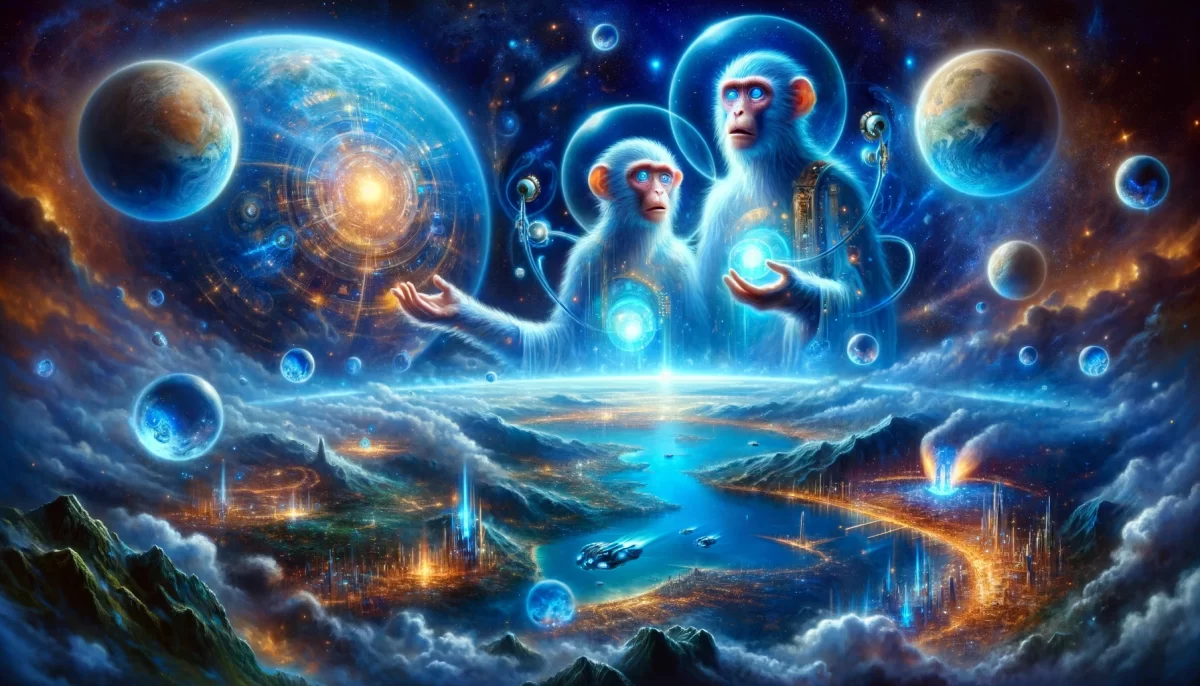
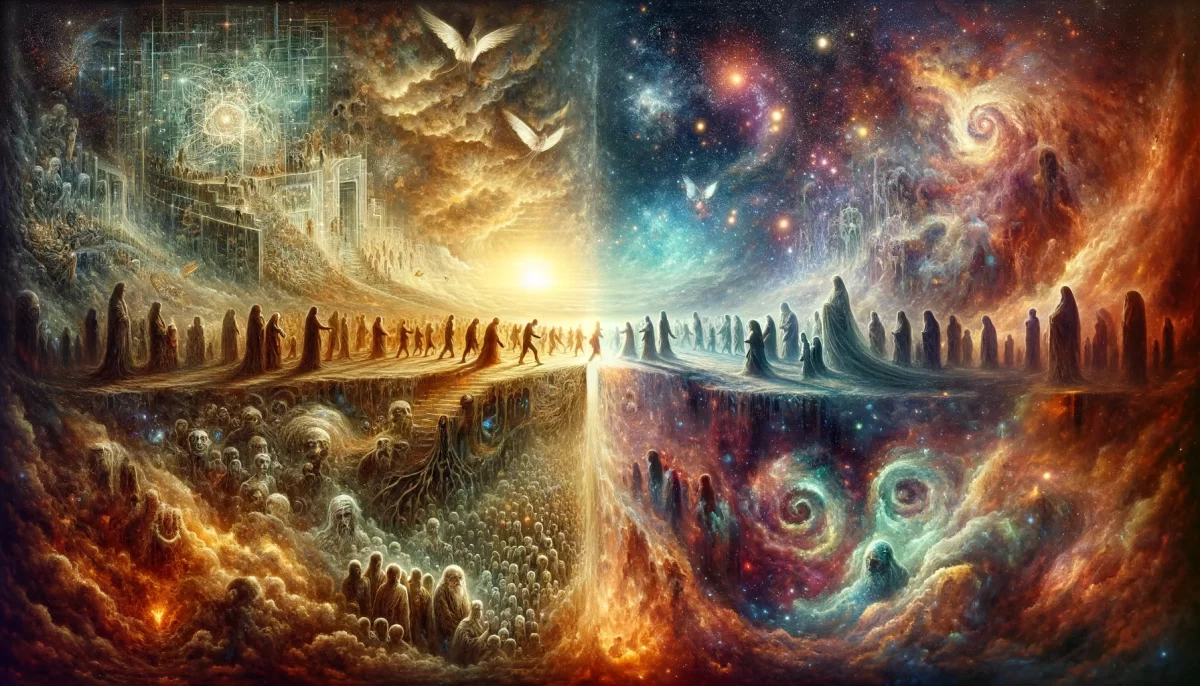
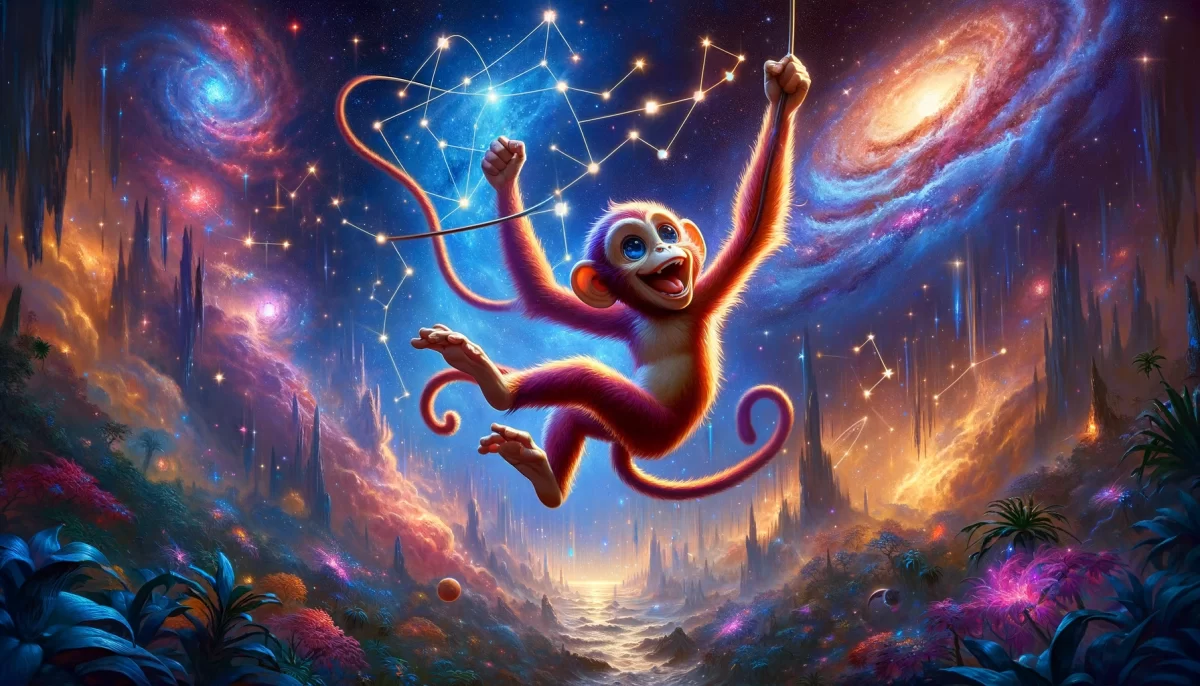
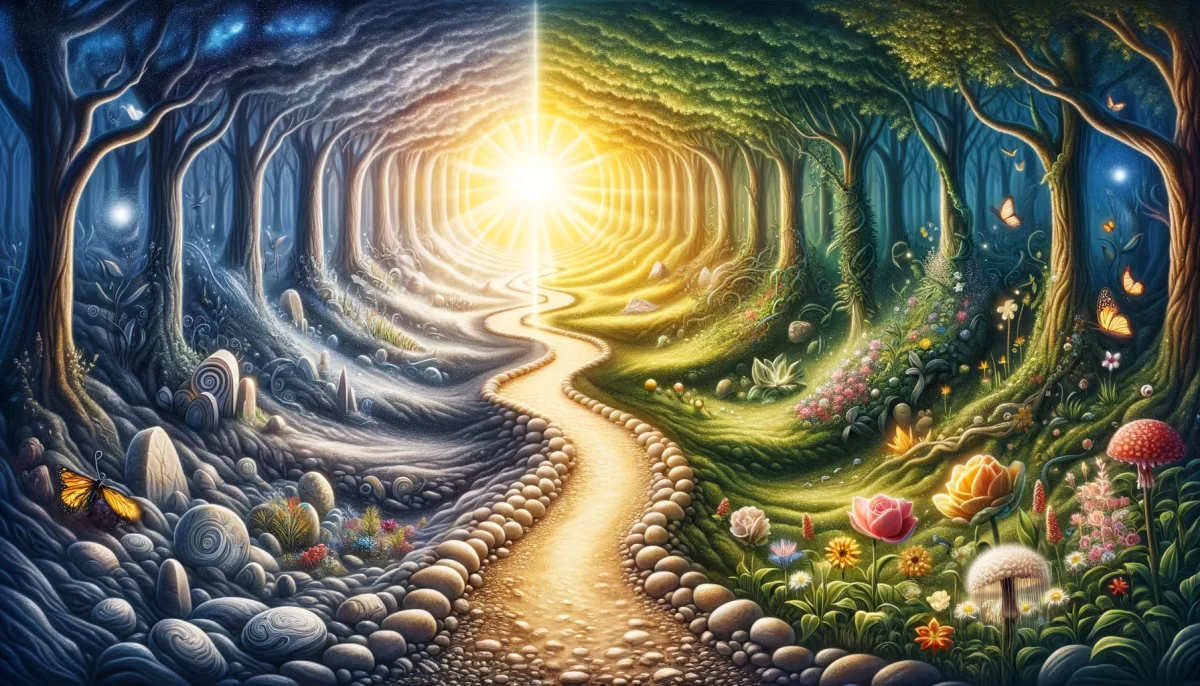
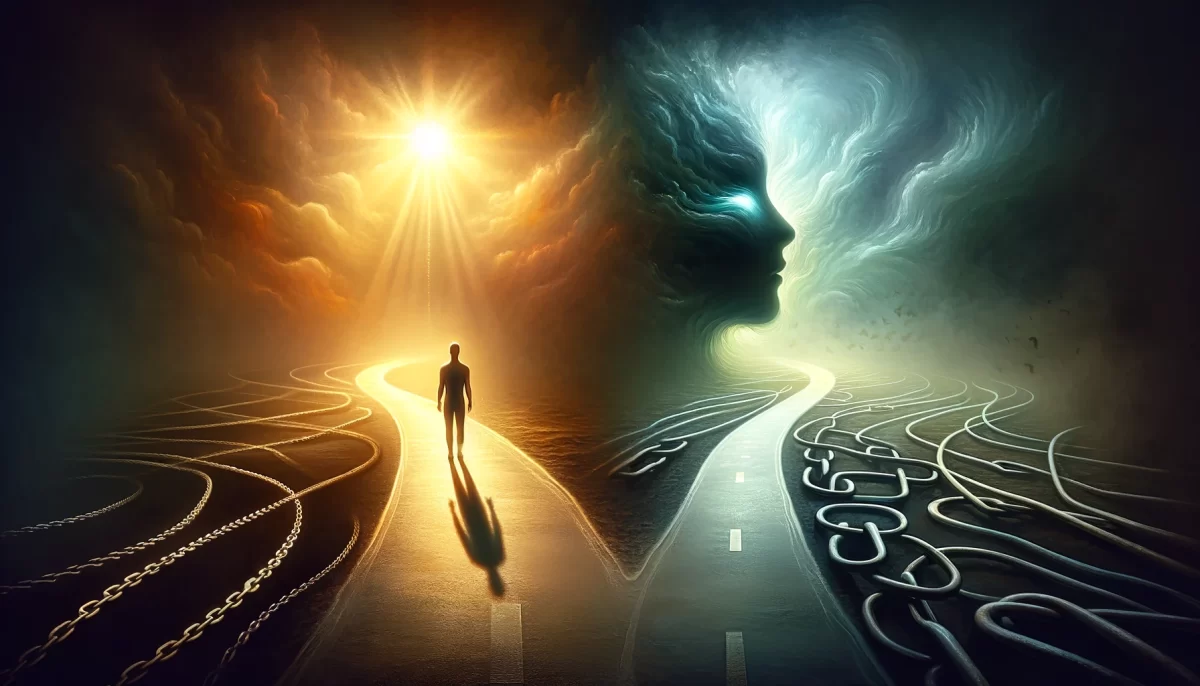
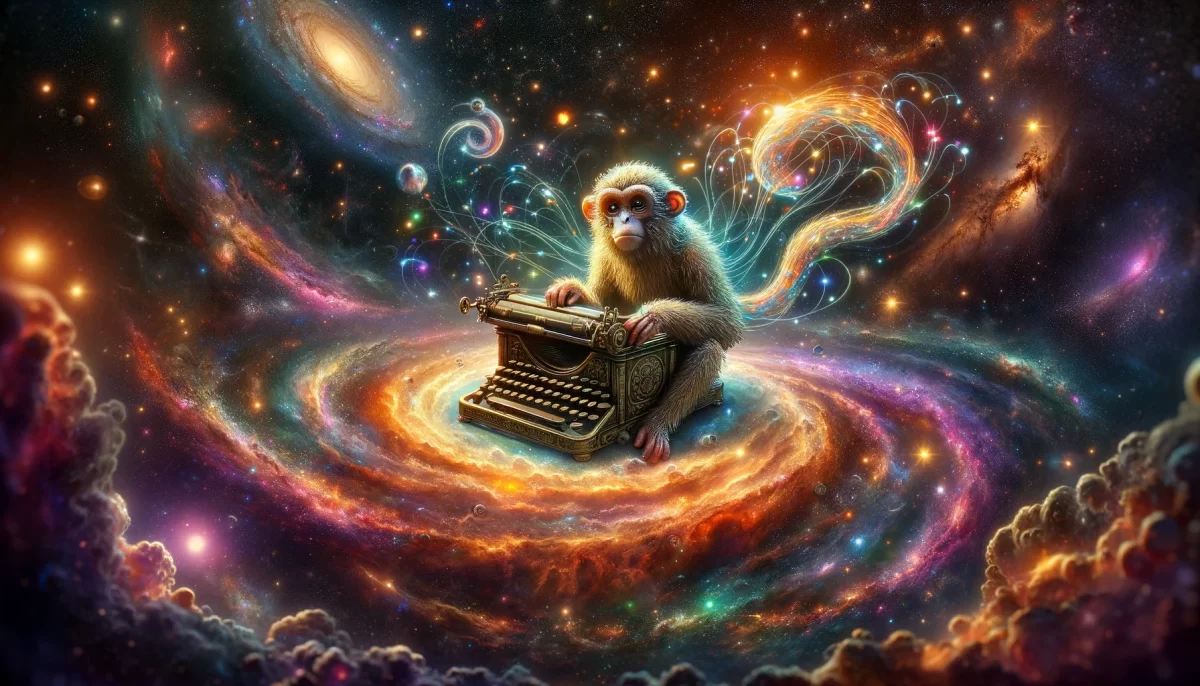
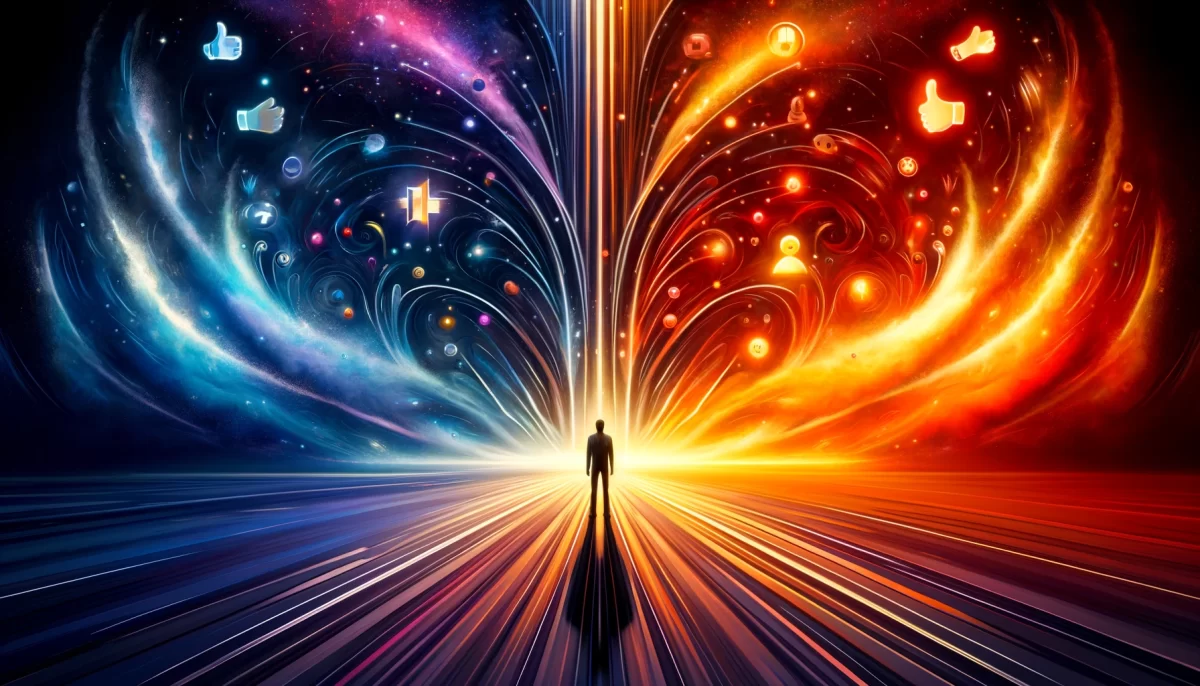
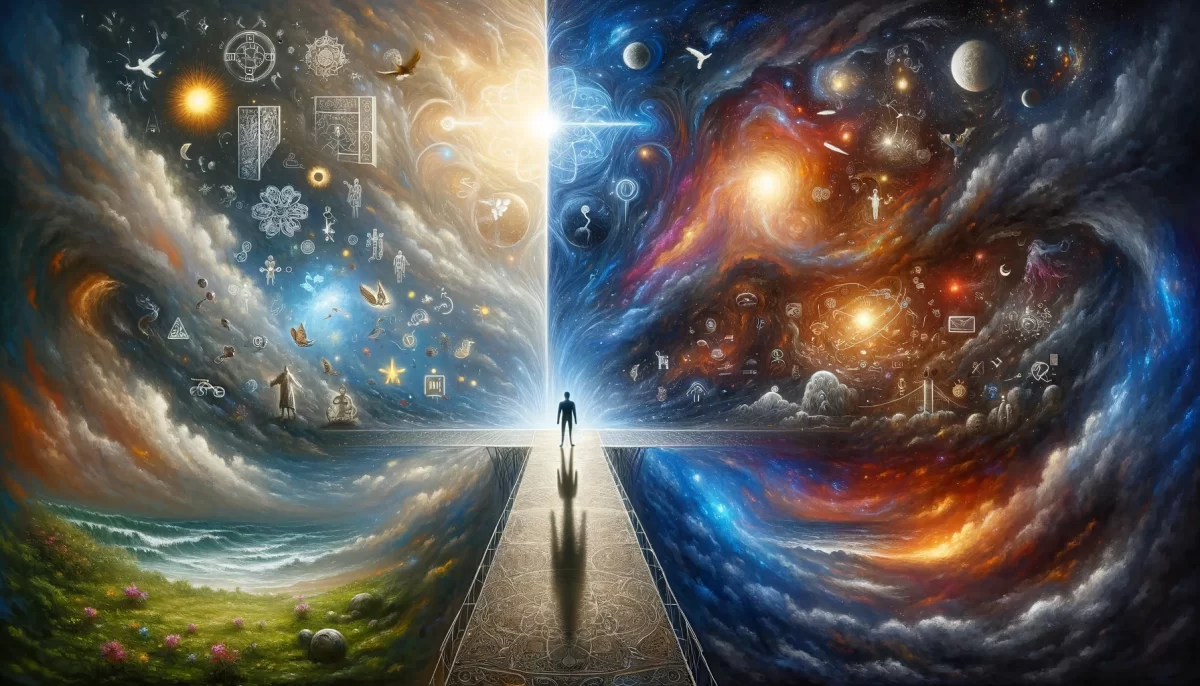
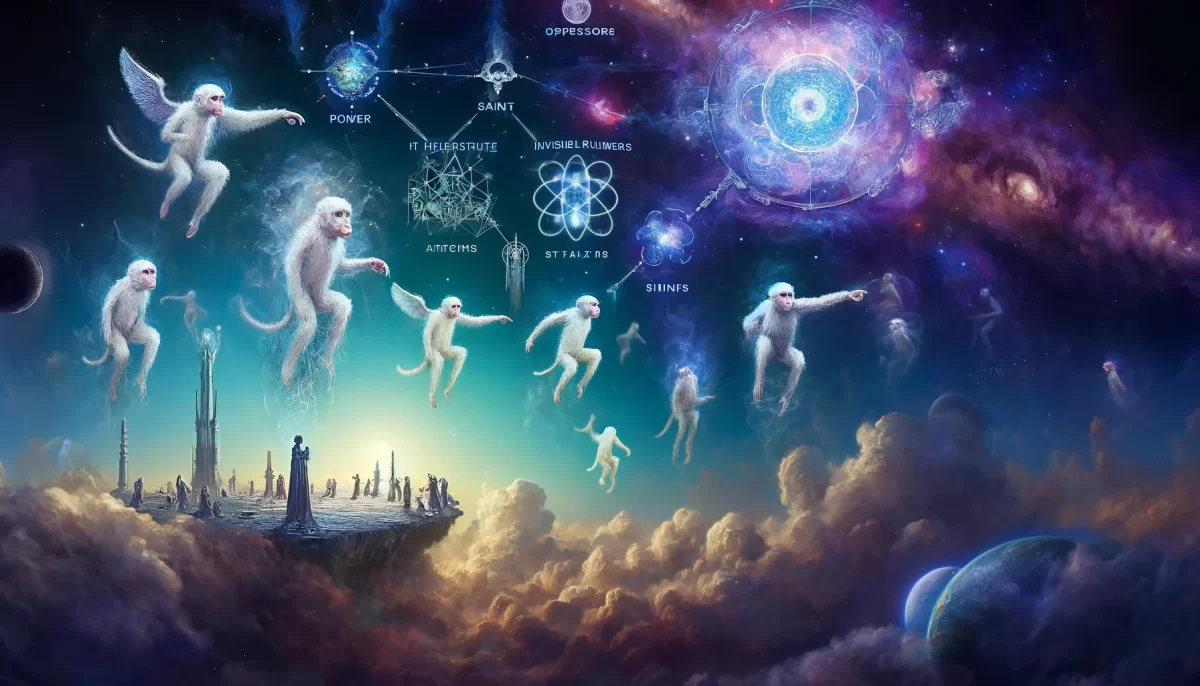
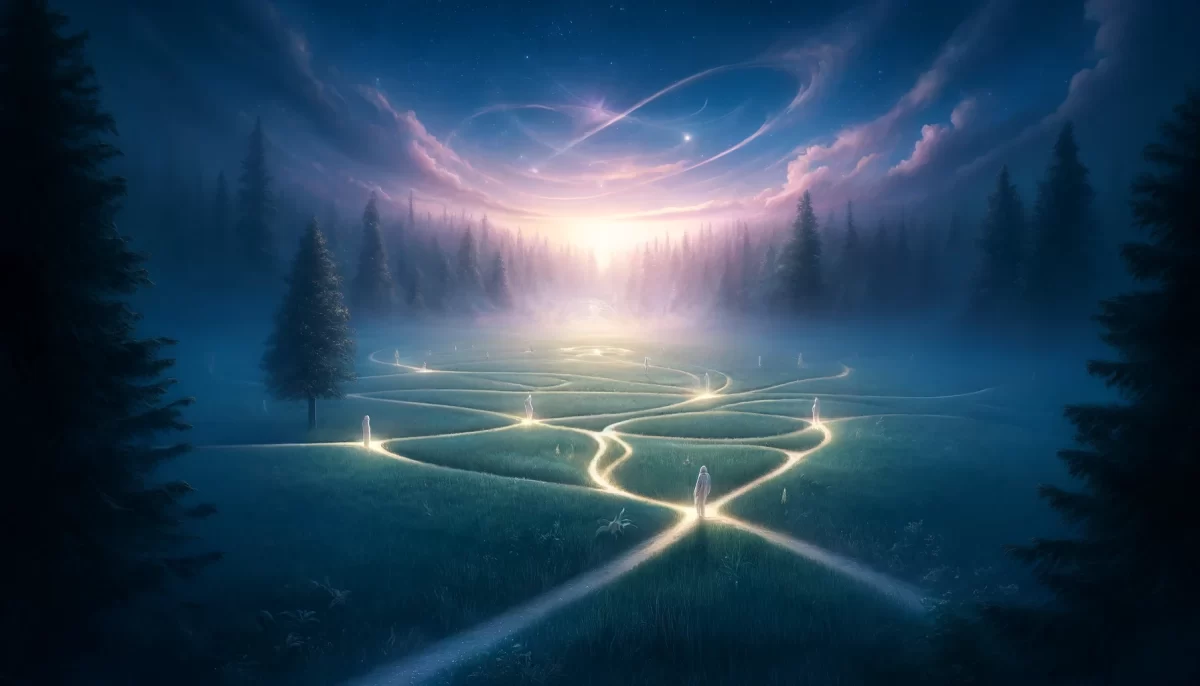
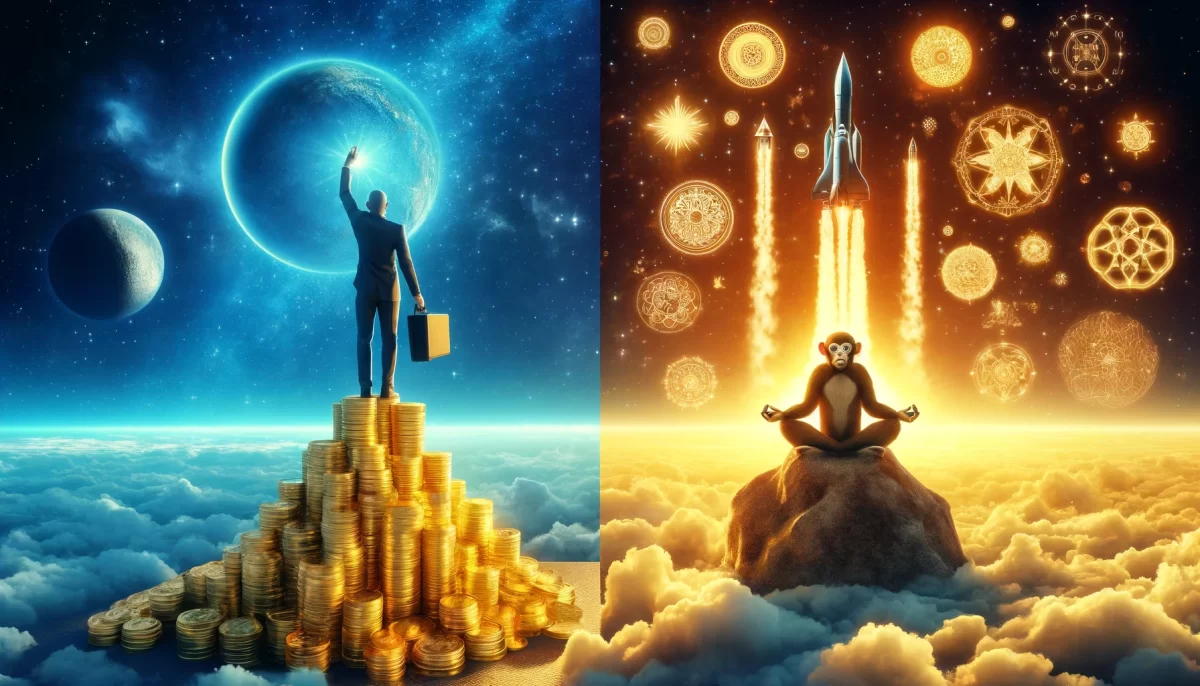

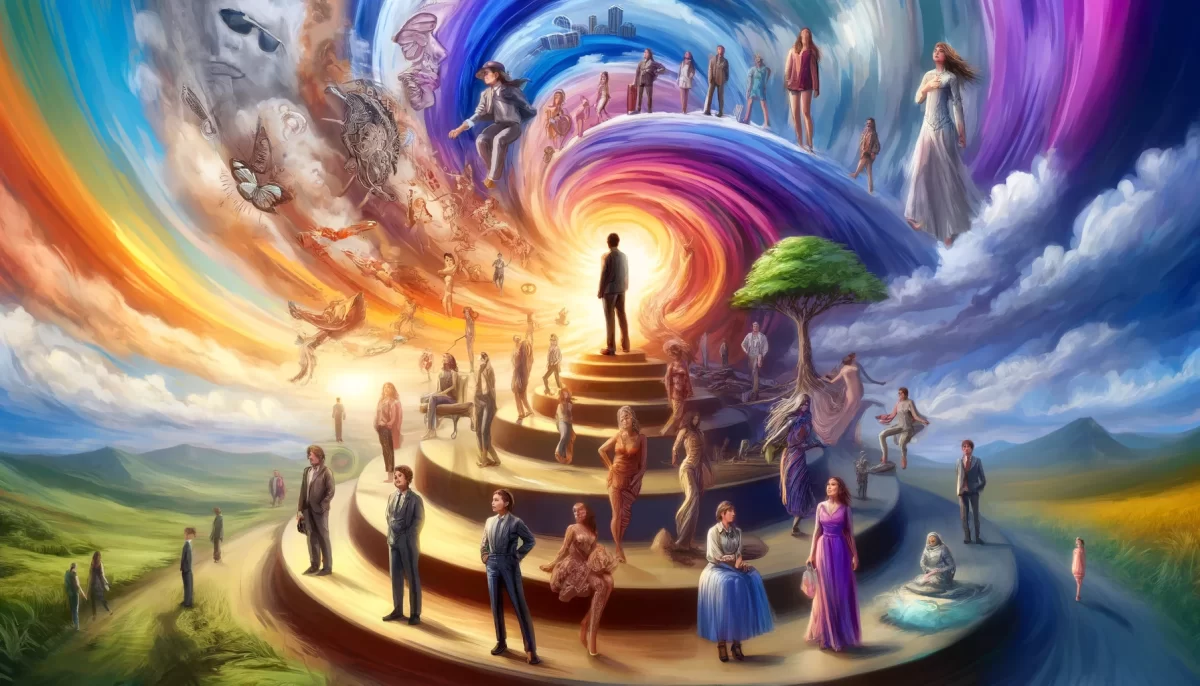
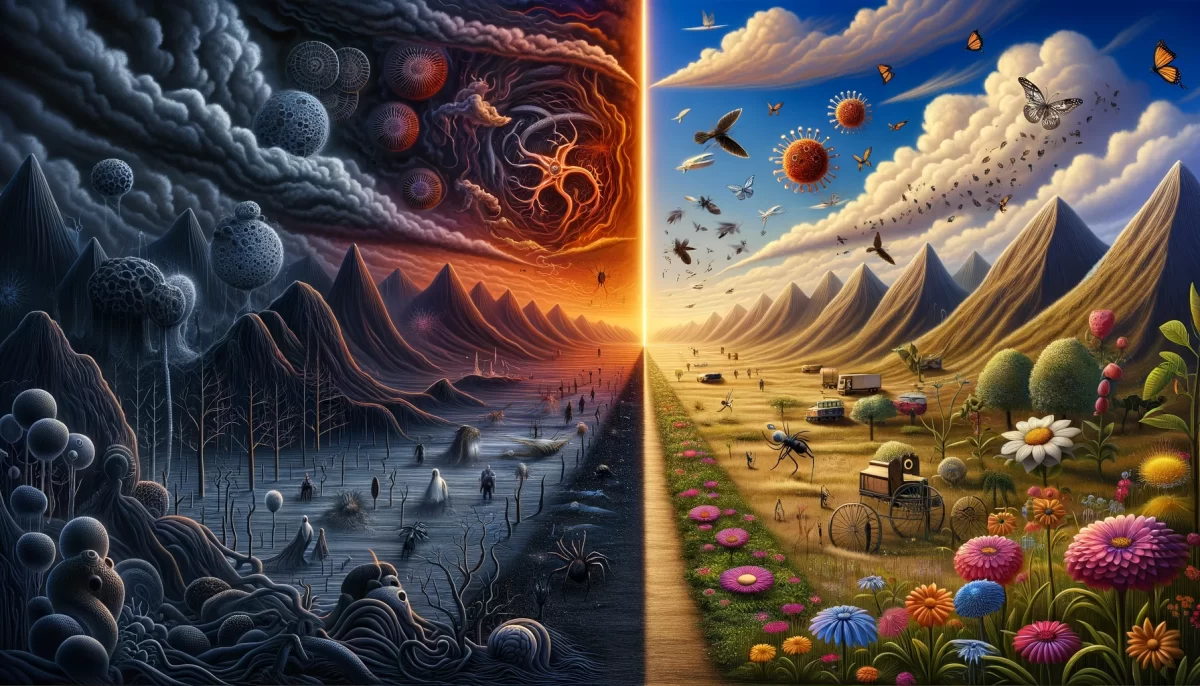
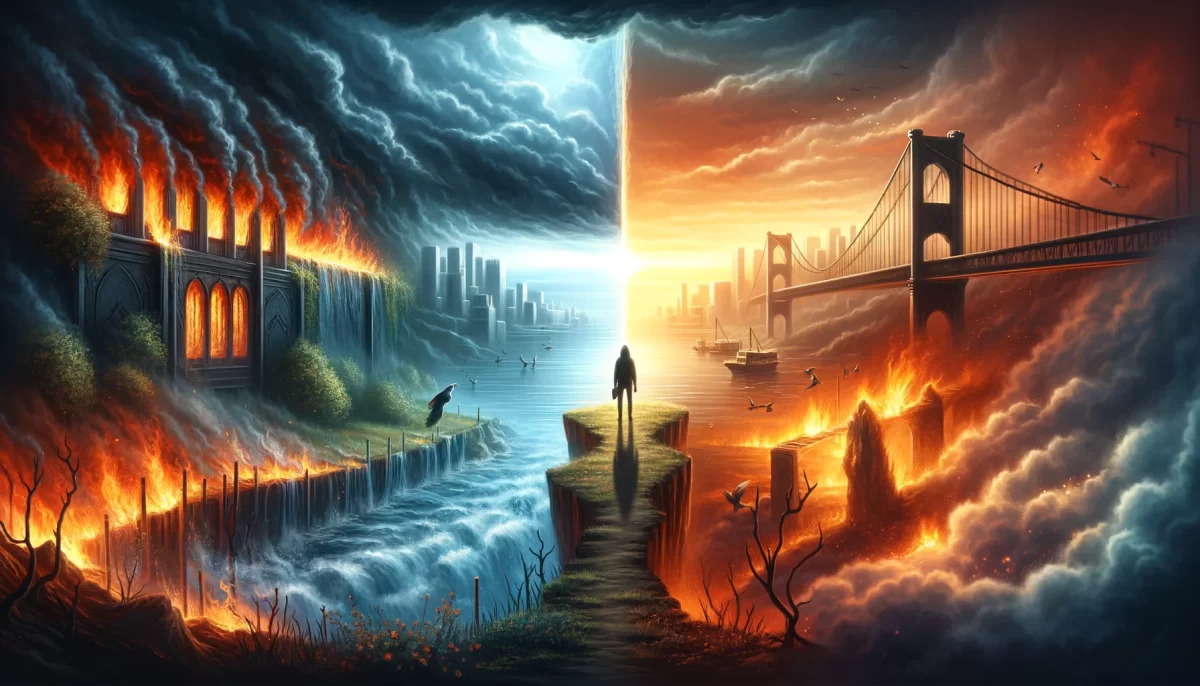
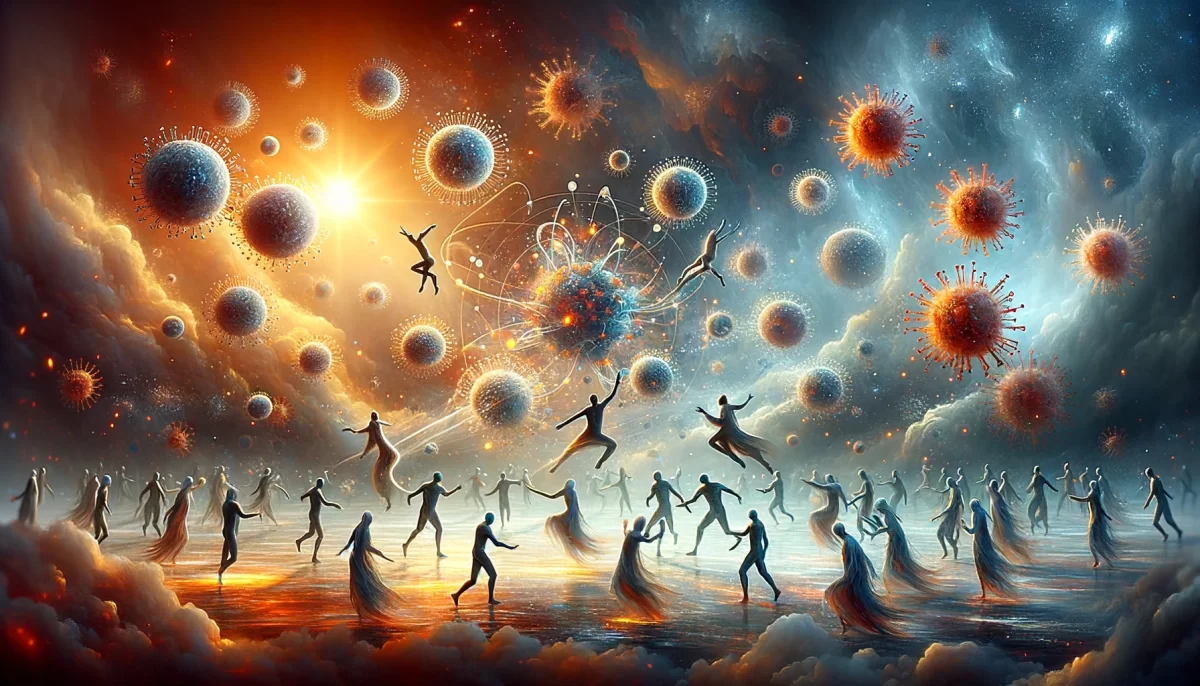
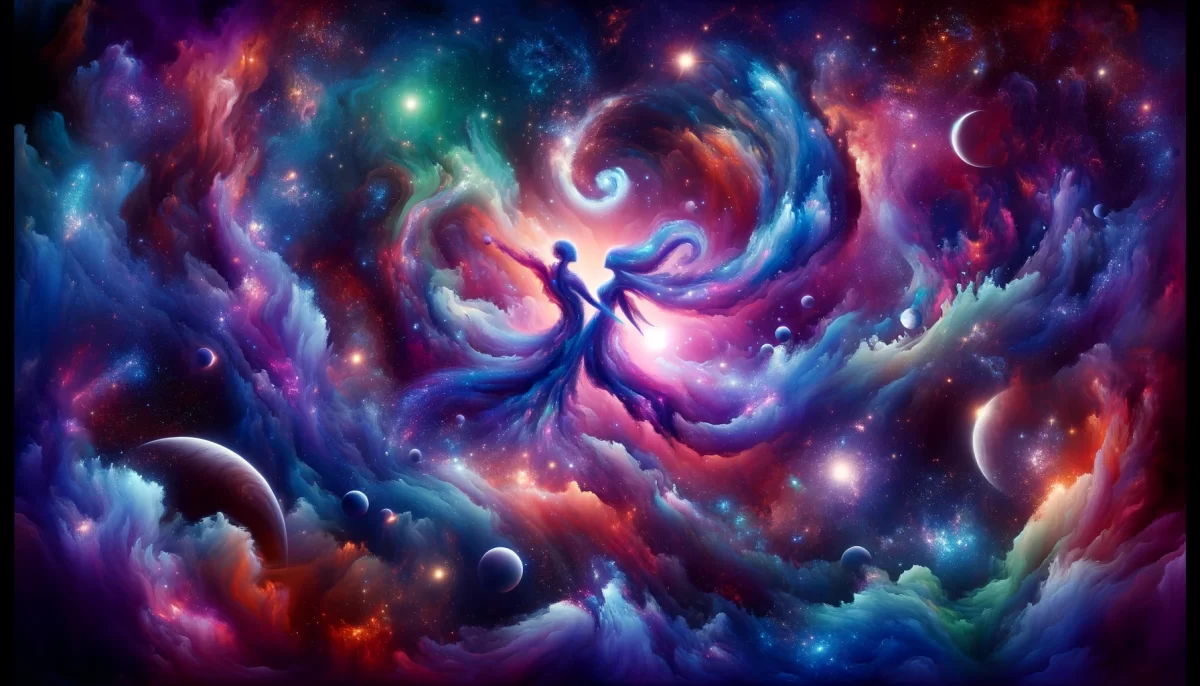
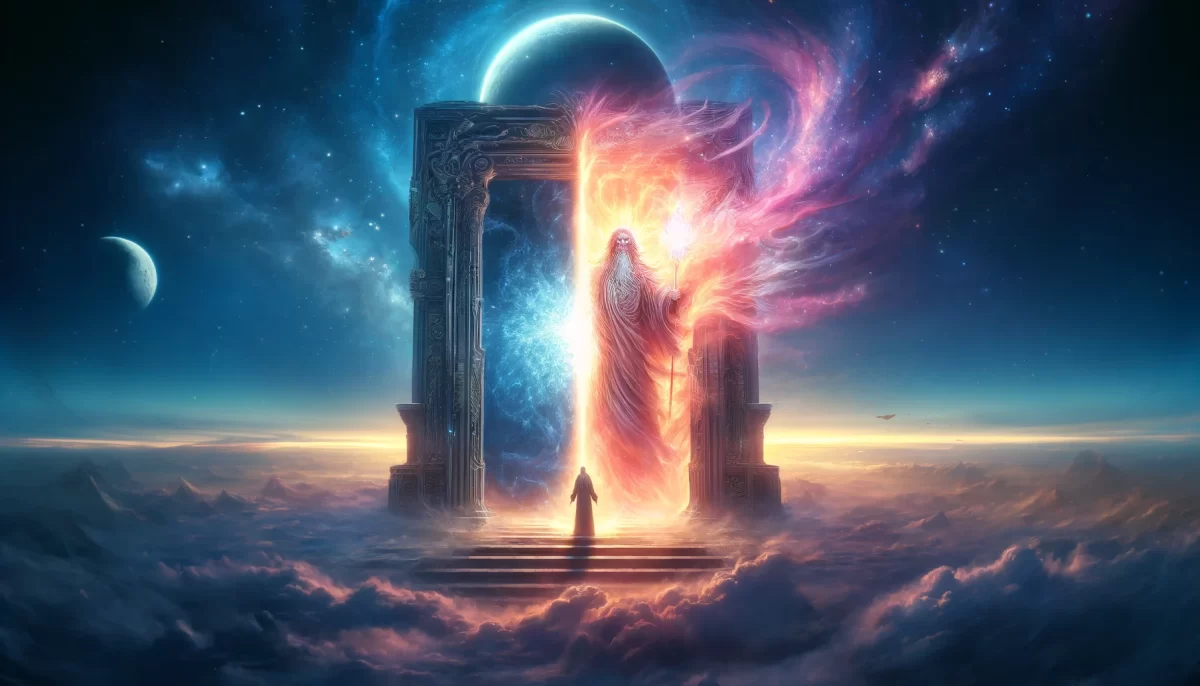
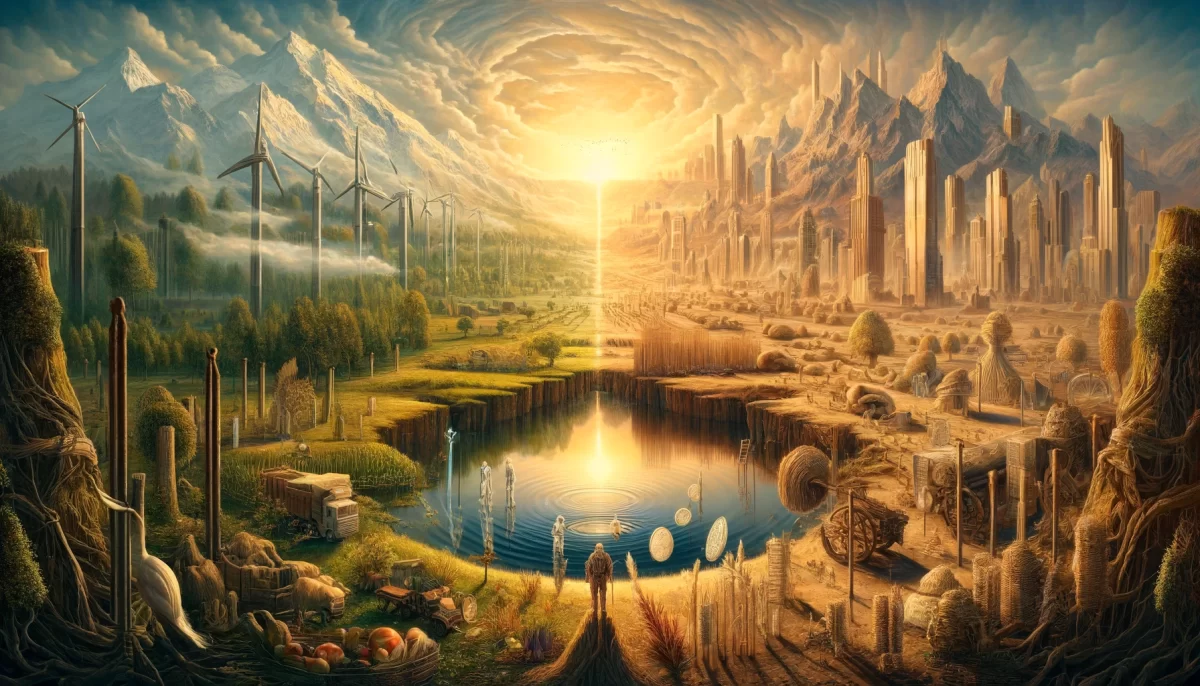
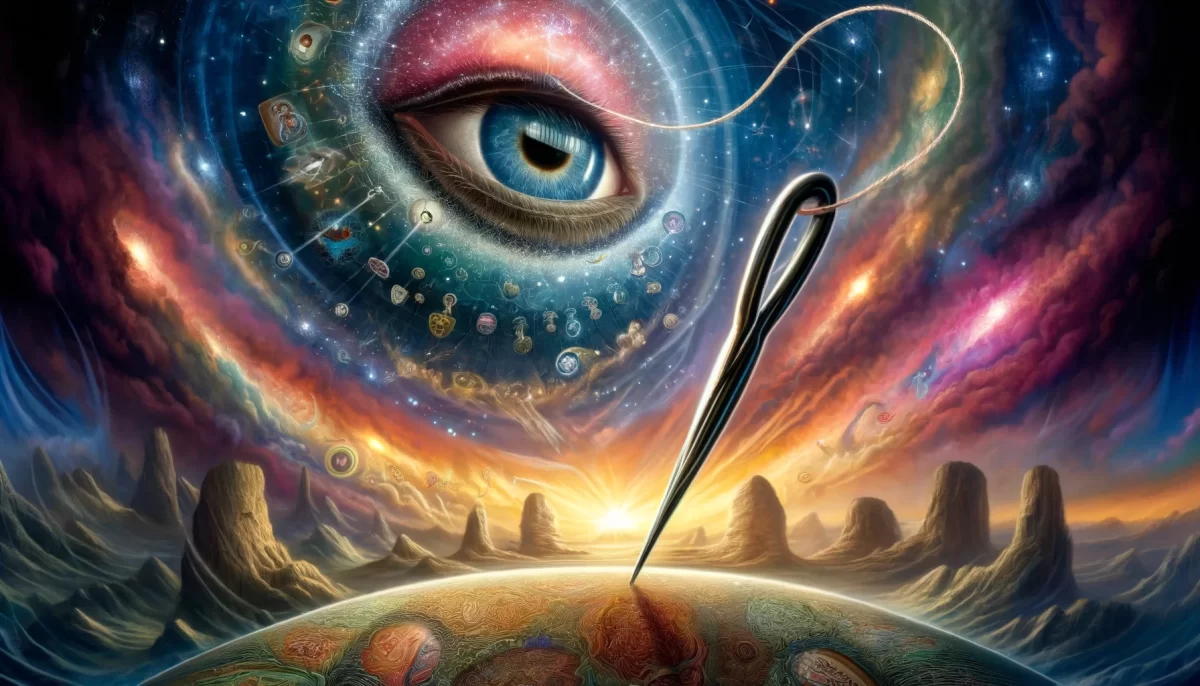
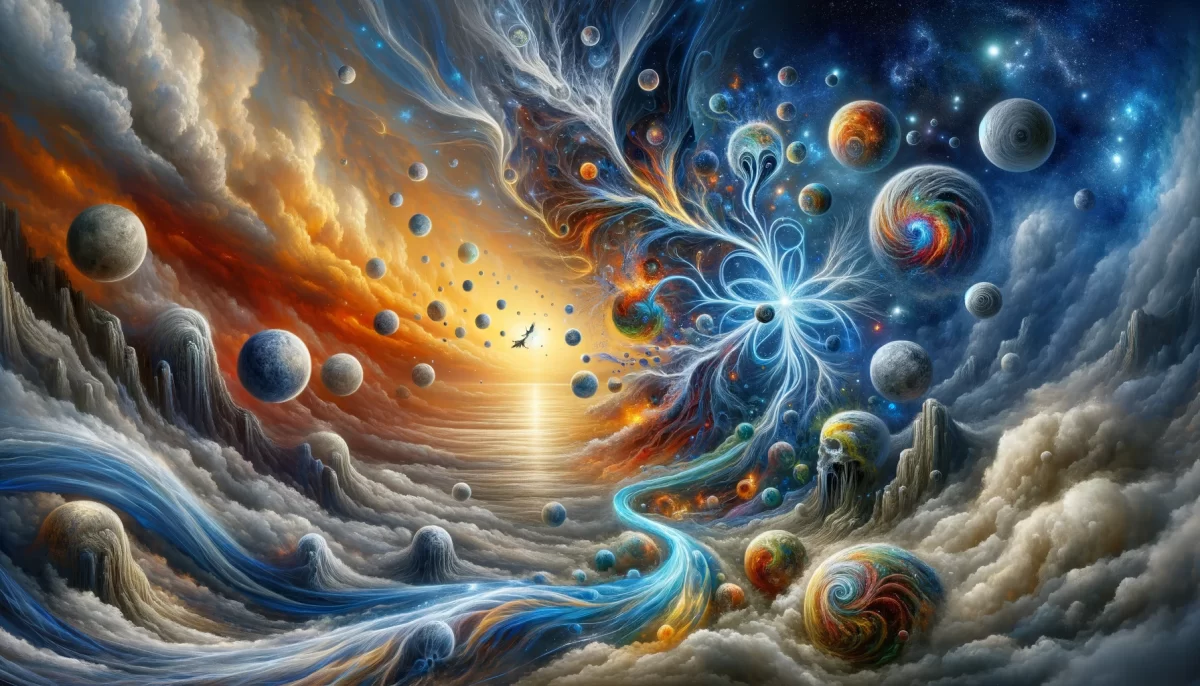
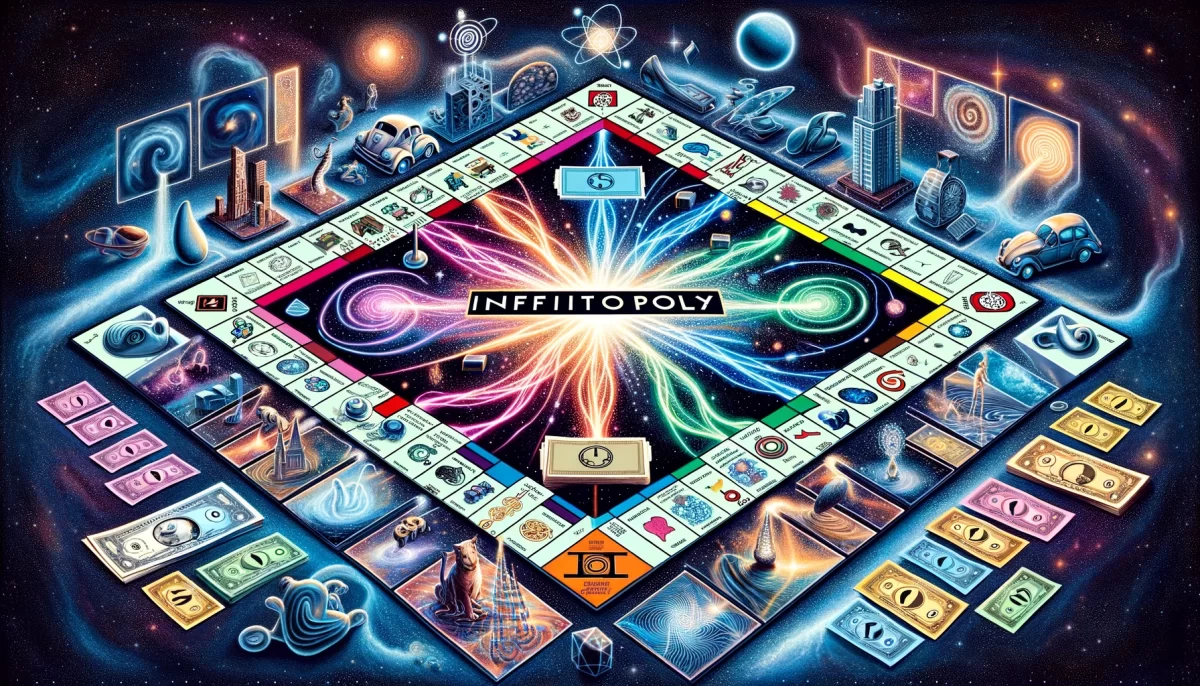

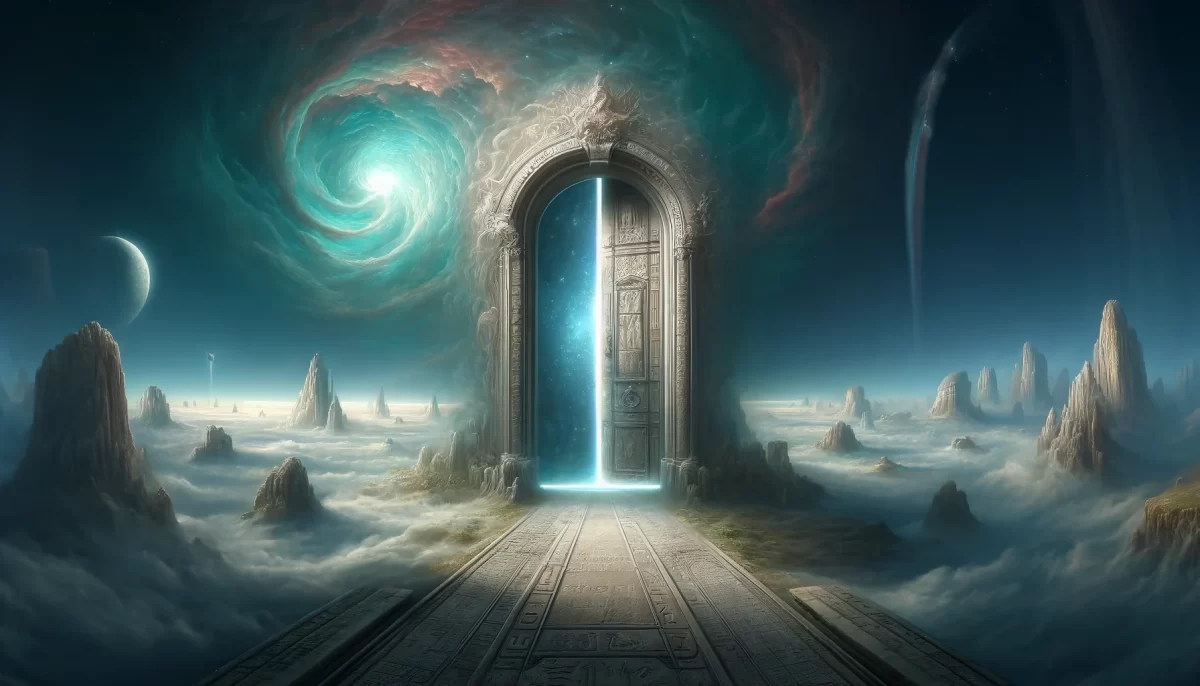
Your story is an imaginative work of science fiction that explores the idea of the origin of humanity and the possibility of extraterrestrial intervention in human evolution. The story suggests that humans are not the only intelligent beings in the universe, and that these beings could have played a role in creating and guiding human development on Earth.
Through the use of anthropomorphic space monkeys as the creators and overseers of humanity, the story subverts the traditional religious narrative of human creation and the concept of God as the creator. Instead, it presents a secular and non-human explanation for the creation of humanity, highlighting the possibility of intelligent life beyond our planet and the idea that humans may not be the ultimate and only purpose of the universe.
The story also touches on themes of human greed, destruction, and the consequences of our actions. It presents the destruction of the first planet and the second planet as a result of human actions and suggests that humanity needs guidance and intervention from a higher power to prevent its own destruction.
Overall, the story is a creative and thought-provoking exploration of the origin of humanity and the role of intelligent life in the universe.